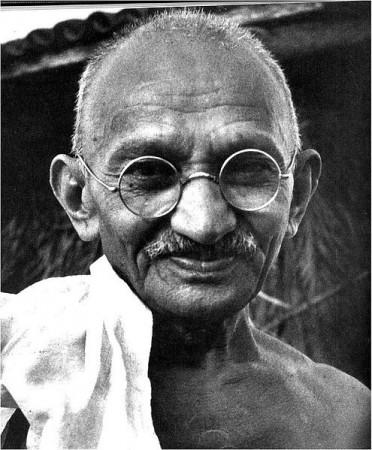
Sotheby's has announced that it will be auctioning a lot of letters, papers and photographs from the archives of Mahatma Gandhi in London next month. This auction is expected to rack in about 500,000-700,000 pounds.
"The vast majority of this is unknown and unpublished, and has not been used by scholars in the last generation or two," Gabriel Heaton, a books and manuscripts specialist at Sotheby's auctioneers, told Reuters.
"It is very much material that will be adding to our sum knowledge of Gandhi and his life," headded.
Gandhi's close friend, Hermann Kallenbach's family hold all the collections of these historically significant literary correspondences.
Hermann Kallenbach was a German born Jewish South African architect, who was touted as one of the closest friends of Gandhi. Gandhi's said to have influenced Kallenbach with his idea of Satyagraha (insistence on truth)and equality among human beings.
Kallenbach also donated his farm house in Johannesburg for Gandhi's cause that housed families of satyagrahis, which was named after Leo Tolstoy, as the former was very much influenced by his writings.
Gandhi developed a close friendship with Kallenbach during his over 20 years of stay in South Africa from 1904 to 1915. Their friendship lately became a subject of uncanny speculations after Joseph Lelyveld, author and Pulitzer prize-winning journalist, released his book "Great Soul: Mahatma Gandhi and His Struggle."
The author of this book came under the fire as he allegedly showed the friendship of Gandhi and Kallenbach in a bad light. However, Lelyveld refuted the reports that his book had allegedly interpreted the father of India (Gandhi) as a homosexual or bisexual. Many states in India also imposed ban on sales of this controversial book.
However, at present all the eyes are on the Government of India to see whether it will take part in bid or initiate any other effort to bring back Gandhi's belongings.
Back in 2009, Indian government opposed auctioning of Gandhi's personal belongings, including his famous round eye glasses, pocket watch, a pair of sandals, glasses, bowl and plate by a US collector, James Otis.
However, followed by a series of drama, Indian liquor baron Vijay Mallya sealed the action for a whopping $1.8 million (Rs 9 crore) and brought back Gandhi's items to India.
Indian government has been keen on retaining things related to Gandhi to the country. Earlier, it bided for a bunch of literary correspondence between Gandhi and Kallenbach, when it came under the hammer in 1986 and the government paid £140,000 (Rs 1.2 crore) to secure those significant letters.
Auctioning of Gandhi's belongings has always been a touchy issue as far as Indians are concerned since he has been widely idolized here. Patriotic rich Indians from across the world participated in the bid and dole out millions of rupees to procure and preserve them in the country itself.
For instance, Mallya, who made a surprise entry during the 2009 auction by appointing a representative for bidding on behalf of him and shelled out steep price for Gandhi's things, channelized the Indianness in him.













!['It's not Mumbai traffic, it's air traffic': Suriya apologises to Mumbai media after paparazzi yelled At Him for making them wait for hours [Watch]](https://data1.ibtimes.co.in/en/full/806234/its-not-mumbai-traffic-its-air-traffic-suriya-apologises-mumbai-media-after-paparazzi.jpg?w=220&h=138)



